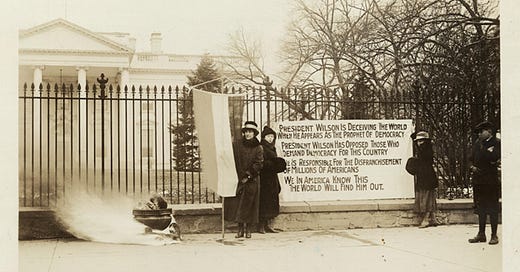She asked President Woodrow Wilson for 22 suffrage "favors." She got 21.
Free Thinker Take-Over!
I’m on vacation! Next week, Mike Duncan, host of the popular podcast “Revolutions,” will fill in for me with an original essay about what was left on the cutting room floor after he finished his new …
Keep reading with a 7-day free trial
Subscribe to Study Marry Kill to keep reading this post and get 7 days of free access to the full post archives.



